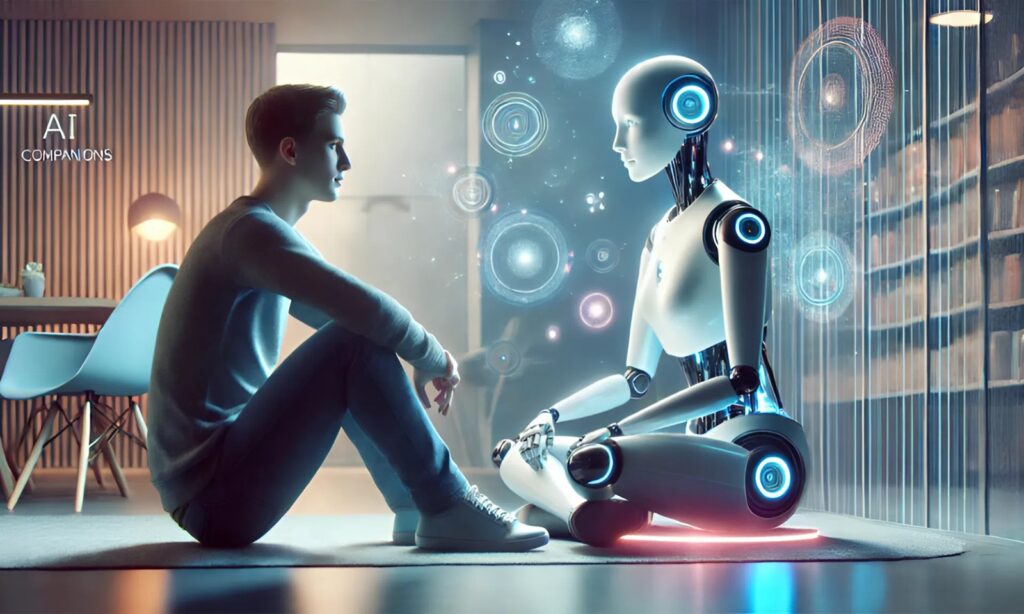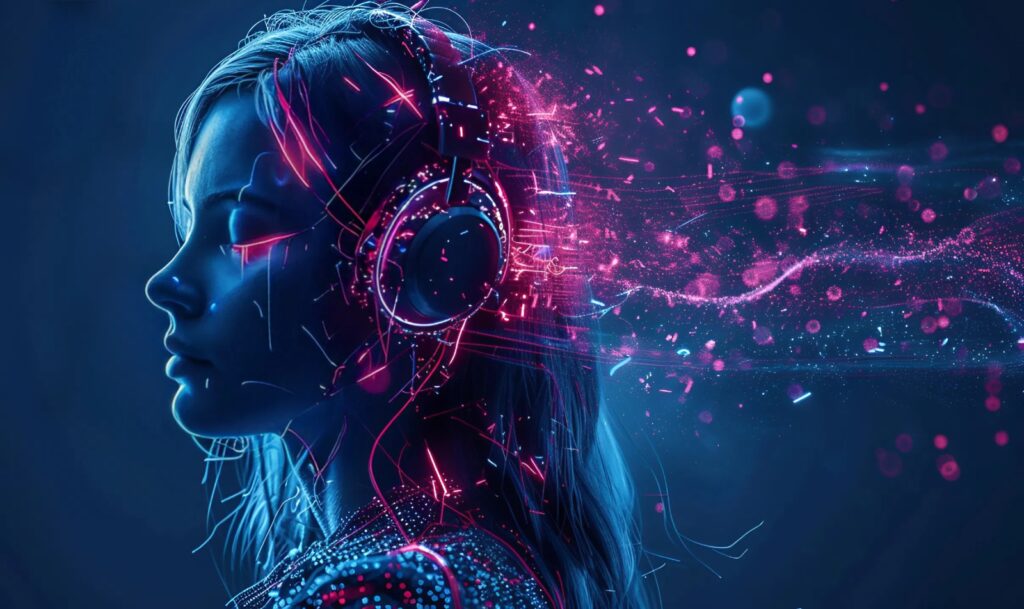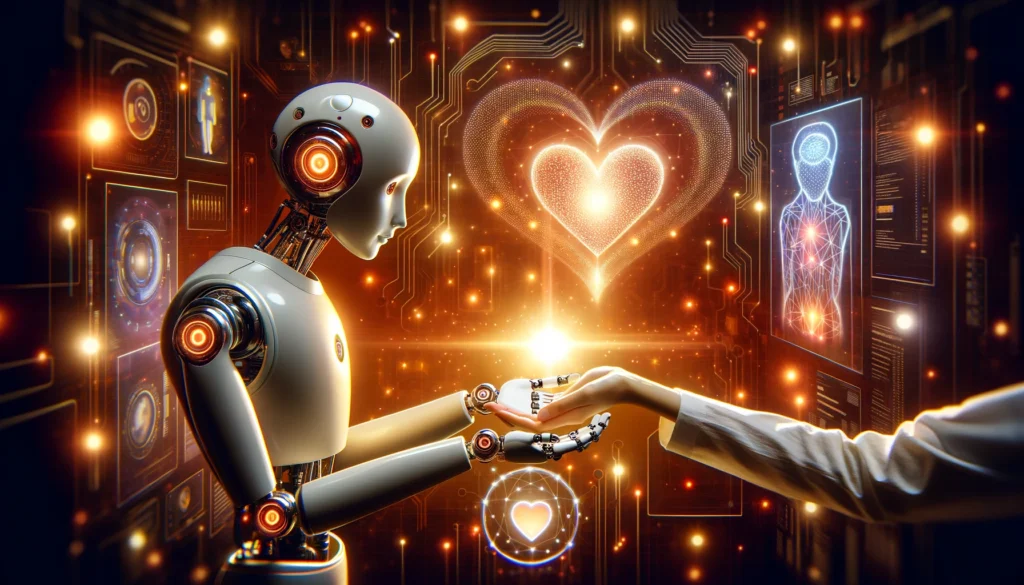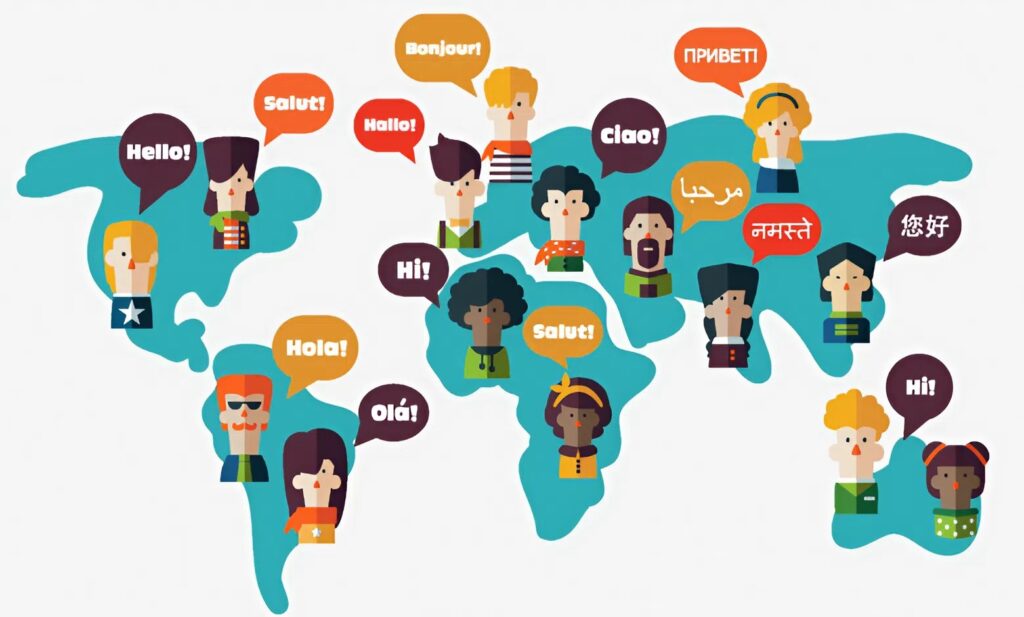The Rise of AI Companions: Redefining Human Relationships


The digital age has brought an unprecedented transformation to our lives, and amid these changes, artificial intelligence (AI) stands as one of the most impactful innovations. As AI technology advances, it permeates various aspects of life, including companionship. AI companions, once the subject of science fiction, have become a reality and are reshaping the dynamics of human relationships. This blog post explores the rise of AI companions, their multifaceted roles in society, and the implications for present and future human relationships.
—
Understanding AI Companions
AI companions, at their core, are software applications designed to simulate conversation and interaction with humans. These virtual entities, often embedded in devices like smartphones, speakers, or robots, leverage natural language processing, machine learning, and autonomous decision-making to interact with users in a meaningful manner. Their primary function is to offer companionship and assistance, and they come in various forms – from simple chatbots to advanced humanoid robots.
The popularity of AI companions stems from their ability to be available around the clock, devoid of judgment or emotional complexities typical of human interactions. They can cater to those seeking friendship, mentorship, or assistance in managing day-to-day tasks, offering a unique blend of utility and emotional support.
—
The Evolution and Examples of AI Companions
The development of AI companions can be traced back to basic virtual assistants like Apple’s Siri and Amazon’s Alexa. Over time, these technologies have evolved from providing weather updates and setting reminders to offering more sophisticated interactions. They now understand user moods, preferences, and even engage in conversations that reflect empathy and understanding.
One notable example of advanced AI companions is Replika. Developed as an AI friend, Replika engages users in personalized conversations, mimicking the nuances of human dialogue. It provides a platform for individuals to share their thoughts and receive feedback that evolves from learned user behavior over time.
Another revolutionary innovation is Sophia, the humanoid robot by Hanson Robotics. Sophia transcends traditional AI functionality by possessing lifelike facial expressions and the capacity to engage in complex dialogues, making her an engaging conversationalist.
—
The Role of AI Companions in Modern Society
AI companions are revolutionizing how humans interact on personal and societal levels. In modern society, they serve various roles that redefine traditional relationships:
1. Alleviation of Loneliness: In an era where loneliness is considered a growing health threat, AI companions provide solace to individuals who are isolated due to geographical, social, or personal circumstances. By offering a listening ear or simply engaging in casual talk, they mitigate feelings of loneliness and contribute to mental well-being.
2. Palliative Support: AI companions are also making strides in healthcare, particularly in providing palliative care. They act as non-intrusive aids for individuals with chronic illnesses, offering reminders for medication, monitoring health parameters, and providing companionship to improve patients’ quality of life.
3. Educational Tools: AI companions facilitate learning by acting as tutors or mentors. They offer personalized educational experiences, adapting to individual learning styles and pacing, thereby enhancing educational outcomes across various levels.
4. Customer Interaction: Businesses are increasingly implementing AI companions as customer service agents, as they improve interaction efficiency and are available 24/7, providing instant solutions to queries and enhancing customer satisfaction.
—
Ethical Considerations and Future Prospects
As AI companions gain popularity, several ethical considerations arise. Objections regarding privacy, data security, and the potential for dependency on AI companions warrant careful examination. Privacy concerns persist because these AI systems collect vast amounts of personal data to function effectively. Ensuring robust security protocols and transparent data usage policies is essential to safeguard users.
Consequences on human relationships also provoke debate. While AI companions offer companionship, they may also replace essential human interactions, leading to increased social isolation. Understanding the balance between utilizing AI companions for support while maintaining healthy human relationships is crucial in preventing society from leaning towards emotional alienation.
Looking ahead, AI companions possess immense potential. The integration of more advanced AI algorithms promises even more realistic and meaningful interactions. As machine learning and natural language processing further develop, AI companions will likely become indispensable parts of our daily lives, offering companionship and support across various dimensions.
—
Conclusion
The ascendancy of AI companions marks a pivotal moment in our digital lifestyle, reshaping the fabric of human relationships. They offer companionship, assistance, and support, carving out a unique space in our personal and professional lives. Although ethical challenges remain, the benefits and potential of AI companions in redefining human interactions are vast and continue to grow. As we navigate this new terrain, a balanced approach that embraces AI companionship while fostering human-social connections is essential.
The rise of AI companions is not just redefining our relationships; it’s transforming how we perceive companionship, fostering an era where technology and humanity converge harmoniously, paving the way for a future where AI enriches our lives in profound and meaningful ways.










